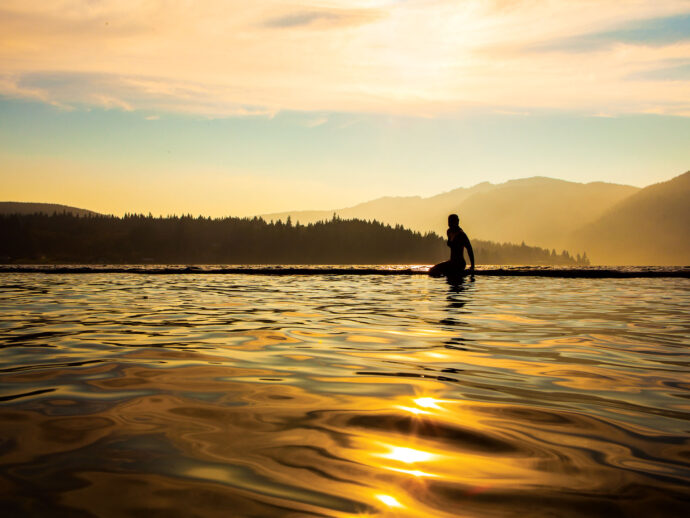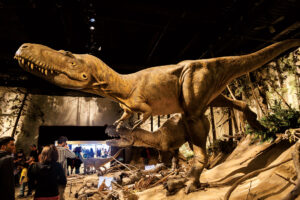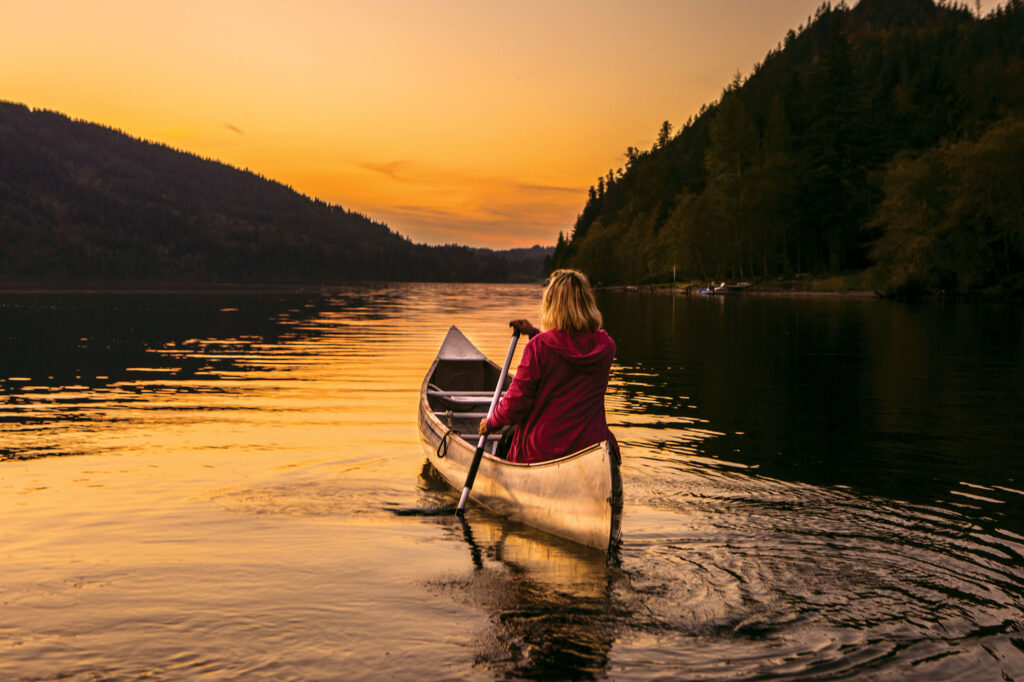
A vacation can quite literally save your life by helping you to better manage stress. Yet most of us struggle to make time to relax. Experts say this needs to change. Three natural health care experts offer tips to get into a vacation mindset today.
I check my phone. Without posting a selfie, how will people know I’m on vacation? But on this sun-dappled dock, at the far end of the lake in BC’s Horne Lake Caves Provincial Park, there’s no reception. It’s vacation unplugged, and more experts are prescribing it for our health.
No wires but always tethered
In today’s world, we’re constantly connected. Social media, work emails, and life’s demands are always just a tap, click, or call away.
Psychologists and numerous studies say this constant connection is stressing us out, but you don’t have to convince me. When I left for vacation, the idea of being unreachable to my work colleagues sent me into overdrive.
But now that I’m here? There’s literally nothing I can do about it. I’m disconnected. All I can do is … relax.
I breathe a deep sigh of relief, inhaling Vancouver Island’s pristine air as a cool breeze sends ripples across the lake. It’s like the wind is blowing away the stress of the daily grind.
A Canadian time crunch
While the Canadian government says approximately a quarter of us feel like our day-to-day lives are very stressful, some health care professionals I chatted with think that number is a bit off. “In practice, it seems much higher,” says Dr. Mélanie DesChâtelets, a naturopathic physician in Burnaby, BC, who sees many patients suffering from chronic stress.
It turns out I’m not the only one struggling to find time to relax. In its report last year, the Canadian Index of Wellbeing highlighted some disappointing statistics:
Of the eight indicators of Canadian well-being, one metric—our leisure time—has seen the most dramatic drop out of all of them.
The amount of vacation we take has plummeted by more than 30 percent in the past few years.
We spend less money on recreation and leisure than we ever have since the early 1990s.
“These trends bode poorly for the well-being of individuals, communities, and society,” warned the index’s researchers.
Stress 101
Stress isn’t inherently bad. It helped our ancestors dodge sabre-toothed tigers and other prehistoric dangers, and today it helps us navigate life. “If we didn’t get stressed, we wouldn’t survive,” laughs Dr. Jam Caleda, a naturopathic physician in Vancouver.
“Stress gets out of hand when it becomes overconsuming,” he explains, “when the manifestation of stress becomes burdensome on our minds, our organs, and our general well-being.”
“When we allow stress to get the best of us, we put ourselves at risk of developing a range of illnesses, from a common cold to heart disease,” warns Gillian Mandich, a holistic health promoter and happiness researcher in London, Ontario.
Vacations, relaxing, and de-stressing don’t just reduce these harmful effects, but they actually improve our well-being. “Benefits of relaxing include decreased blood pressure, improved focus and concentration, improved energy, and less muscle tension,” says Mandich, to name a few.
Natural supplements for stress
 Multivitamin/mineral supplement
Multivitamin/mineral supplement
Ensure this formula contains B vitamins (particularly B5) and magnesium to support the adrenals. Evidence suggests that supplementation with a high dose B-complex vitamin and mineral supplement can lead to improved ratings of stress, mental health, and mood, as well as improved cognitive performance.
Adaptogens
Adaptogens are plants that have beneficial effects on adrenal function and are used therapeutically to promote an optimal physiological response to stress.
Rhodiola (Rhodiola rosea) has been shown in studies to reduce fatigue and increase the ability to concentrate.
Ashwagandha (Withania somnifera) has been found to significantly reduce experiential and biochemical indicators of stress.
Antioxidants
There is a high turnover of antioxidants during the stress response. An antioxidant formula that includes vitamins A, C, D, and E, as well as the minerals zinc and selenium, can help replace antioxidants. Vitamin C is the brain’s most prevalent antioxidant and is essential to support the adrenals.
A vacation state of mind
Taking a break doesn’t start with a destination, but with intention. “Vacationing is a state of mind, a deliberate effort to focus on appreciation,” says DesChâtelets.
“Put yourself as the priority,” Caleda says. This is the top mindset that we need to focus on if we want to truly learn how to unwind. He notes that for many of us, we think we can put off going on vacation until we have more time, or when life slows down, or when work is no longer so hectic.
“In reality,” says Caleda, “if you take time to do something for yourself every day, the burden of the things you need to do to succeed in life becomes less difficult.” Prioritizing ourselves and slowing down actually helps us be more and do more.
“Really tap back into how to be a kid,” Caleda suggests. “I ask myself, what did I do as a kid that fed me? When I look at myself through past stressful situations and I think about what I did [as a kid] to get myself happy, if I do it now it still works!” This could be sports with friends or board games with the family. Other at-home relaxation ideas include
- hiring a massage therapist who does home visits
- indulging in aromatherapy and soothing music
- creating your own yoga retreat: unplug the phone, stop the mail, order a healthy juice delivery service, and enjoy your favourite yoga DVDs for a few days
Did you know?
The United Nations has declared that leisure time and paid vacations are a human right.
Nothing wrong with nothing
“Take some time to not feel bad about sitting on the couch watching Netflix,” says Caleda. “Really know you’re setting time for yourself.”
Should I stay or should I go now?
We don’t need to travel hundreds of miles to escape. “Find vacation spots in your city or home,” recommends DesChâtelets. Staycations are one of the top travel trends this year, and more than half of Canadians say exploring Canada is their top travel plan in 2017.
“I have a favourite breakfast joint that plays Latin music,” says DesChâtelets. “Every time I go, I feel I’ve been transported to Central America. When I head to our local beaches, admiring the views of mountains and trees, I can close my eyes and imagine I’ve flown from afar to be here.”
These little staycations help DesChâtelets stay grounded. “Both my partner and I have businesses, so there have been stints when we’ve had to work through tough times,” she says.
She looks for early signs of stress in herself. “I tend to feel physically tired and notice that my motivation to reach my goals wanes,” she says. “When that happens, I know it’s time for a quick pattern interruption to disconnect, reflect, learn, and recharge.”
“Often, it’s a weekend getaway nearby,” she says. For de-stressing, she thinks staying local is sometimes actually better than going somewhere exotic. “[If it’s] somewhat familiar, I don’t have to exert energy exploring.”
Play a tourist and vacation in your own hometown
- Book a weekend at a spa or nature resort.
- Discover nature outside of your own neighbourhood.
- Hike some new trails.
- Take in some live theatre or music performances.
- See a show at the local dance or community centre.
- Explore local museums or art galleries.
Nature-based R&R
“I was recently collecting data for my research study, and recruitment was a challenge at first,” recalls Mandich. She was worried she wasn’t going to get the sample size she needed, which would jeopardize her entire study.
“I’ve worked really hard to learn tools like meditation and yoga, yet in this situation they weren’t working,” she says. “So I decided to take a few days and head to a quiet retreat in the woods to relax and regroup.”
She booked a stay at an organic resort. “It was nestled in the woods on a secluded 50 acres,” she says. When considering your next getaway, that point is key.
Vacationing in nature, whether it’s forests or beaches or mountains, has tangible benefits. Numerous studies show how reconnecting with the great outdoors soothes away chronic stress, makes us feel better, and boosts our mental health, especially for those of us who live in cities.
“I felt reinvigorated,” recalls Mandich of her forested escape. “It’s amazing what perspective, vision, and clarity you can find when you pause and take a step back from a stressful situation.”
It starts with you
Whether it’s curling up with a book at home or flying somewhere tropical, book time for yourself today. It will help you regain balance and energy. A little rest now sets you up for a successful rest of the year.
Glamp across Canada
Parks Canada makes eco-vacations easy with glamping options (fun camping accommodations) across the country:
- double-tents in Riding Mountain National Park (Manitoba) or Forillon National Park (Gaspé Peninsula, Quebec)
- cocoon tree tents in Cape Breton Highlands National Park (Nova Scotia)
- micro-cubes (tiny houses) in Riding Mountain National Park (Manitoba) or Forillon National Park (Gaspé Peninsula, Quebec)
- yurts, or a pod with hammock loft and sofa bed called a Goutte d’Ô, in Fundy National Park (New Brunswick)
- fully equipped campsites in select Parks Canada sites across Canada that are set up for you—tent, inflatable mattresses, and propane grills included—so all you have to do is show up and relax
 Try a Canadian getaway
Try a Canadian getaway
Celebrate Canada’s 150th birthday by visiting our own country’s adventurous getaways.
Big Muddy Valley, Saskatchewan
It’s our version of the Wild West, where infamous bandits like the Sundance Kid roamed.
Kluane National Park, Yukon
Explore Canada’s tallest mountain with sweeping vistas of valleys and blue glaciers.
Marble Mountain, Newfoundland
Hit the hiking trails with the family for some beautiful views. Look for the Heritage Tree at the mountain’s base, which represents Canada’s unity and showcases 1,000 years of history.
Drumheller, Alberta
See real dinosaur remains in the dino capital of the world, and visit Canada’s only museum dedicated to the science of paleontology.




































